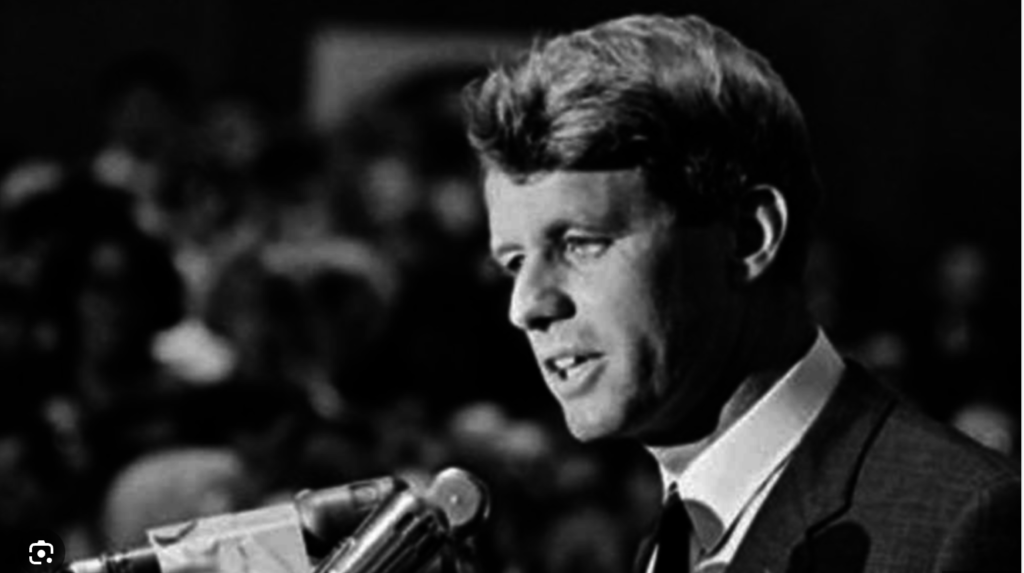“My favorite poet was Aeschylus. He once wrote, ‘And even in our sleep, pain which cannot forget falls drop by drop upon the heart, until in our own despair, against our will, comes wisdom through the awful grace of God.’
“What we need in the United States is not division. what we need in the United States is not hatred. What we need in the United States is not violence and lawlessness, but love and wisdom and compassion toward one another, a feeling of justice to those who still suffer in our country, whether they be white or whether they be black.“

On April 4, 1968, African-Americans rioted in every major American city except one to protest the killing of Martin Luther King in Memphis.
What was different about that one city, Indianapolis?
Bobby Kennedy was different.
The quote at the beginning of this piece was what he told a largely black audience that evening, an audience that was unaware of what had happened more than 460 miles to the southwest.
Why bring this up today? Well, exactly 55 years ago today, barely two months after Dr. King’s death, Bobby Kennedy died at the hand of another assassin in Los Angeles. And while Kennedy’s older brother John once said no political assassination had ever really changed history, this one did.
This one essentially changed America.
We have never been the same. There has never been a man, a candidate who might actually have been elected and become president, who appealed to our better angels as effectively as Bobby Kennedy did.
In as tumultuous a time as we can imagine, Kennedy managed to appeal to white Americans, to black Americans and to Latino Americans. He didn’t speak of “growing the economy” and he didn’t play up some vague concept of a middle class that is all but meaningless.
He was never about making the rich richer or making it easier for people to buy vacation homes or third cars. In fact, there are few political figures in American life who displayed more of an evolution during their careers than Bobby Kennedy.
Those who hate him point out that he worked for Joe McCarthy and that he was ruthless in his campaigning for his brother in JFK’s political career. They called him a carpetbagger for running for the Senate from New York in 1964.
Much of that is true, but no one changed more and in a more positive way than he did in the last four years of his life.
It was June 4th, 1968, when Kennedy won the California primary and put himself in position to capture the Democratic nomination in August in Chicago.
It was also the last full day of his life.
It’s difficult to imagine how different things might have been had Bobby survived and gone into Chicago as a strong candidate. For one thing, the entire tone of the convention might have been different, and a fall campaign with Kennedy instead of Hubert Humphrey as the Democratic nominee would have been far different.
Imagine an America in which the Vietnam War was cut short by several years, an America in which Richard Nixon was never president.
Imagine an America in which the president not only quoted poetry, but quoted an ancient Greek poet and wasn’t speaking to an academic audience. Then think of Republican presidents like Ronald Reagan, Gee Dubya Bush and Donald Trump who may never have read poems that didn’t have five lines and an a-a-b-b-a rhyme scheme.
“There once was a man from Nantucket …”
Don’t ever kid yourself that assassinations don’t change history.
